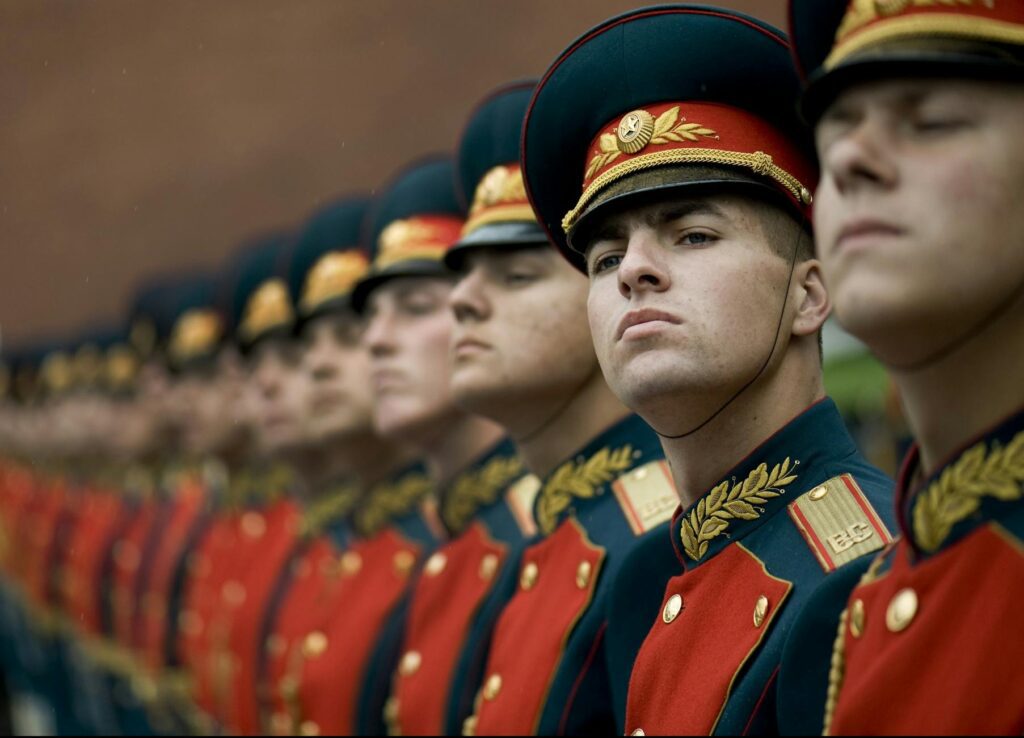Nigeria
FG Clarifies: Russia Not Recruiting Nigerians or Africans for War in Exchange for Visa Renewal

The Federal Government has rejected media reports claiming that Russia is supposedly sending thousands of migrants and foreign students to join its troops in the conflict against Ukraine in exchange for visa renewal.
Earlier, there were reports that Russia was allegedly pressuring African students and young workers to enlist in the military by threatening not to extend their visas, as per officials familiar with the situation.
Nonetheless, the federal government has denied these reports, affirming that it is in contact with Nigerians residing in the European nation.
“The Ministry of Foreign Affairs has been made aware of news articles published by various Nigerian media outlets on Monday, June 10, 2024, which inform the public that the Russian Government is recruiting Nigerian and other African students to take part in the ongoing conflict with Ukraine, promising visa renewals,” the statement stated.
READ ALSO: Orban Warns NATO Edging Closer to War with Russia
“The Ministry would like to clarify that the Nigerian Embassy in Moscow is in constant communication with the leadership of the Nigerian Students Association in Moscow, Russia, and there have been no reported incidents of Nigerian students, or any other African students, being conscripted to participate in the aforementioned conflict. The newspaper reports are therefore inaccurate and deceptive, and should be disregarded.

“The Ministry takes this opportunity to urge media outlets to exercise caution in their duties by verifying the information they have before making it public.”
Russia Maintains Silence
Moscow has reportedly been utilizing inmates from its prisons, while certain Africans in Russia on work visas have allegedly been detained and coerced to choose between deportation or military service, as per one European official. Some individuals have managed to bribe officials to remain in the country and avoid conscription, the official mentioned on condition of anonymity.
The European official also mentioned that Russia’s practice of pressuring migrants and students into combat has been ongoing since earlier in the conflict. These individuals face higher casualty rates due to being deployed in risky offensive operations to protect more experienced units.

Despite attempts to reach out for comments via email, a spokesperson for the Russian Foreign Ministry did not respond.
Reports from Ukrainian intelligence suggest that Russia has been actively recruiting foreign mercenaries in over 21 countries, including various African nations. Recruitment drives offer attractive signing bonuses and salaries for those willing to serve as contract soldiers. Migrants and students who previously sought employment in Russia have also been targeted, with promises of well-paid work before being coerced into training and deployment.
Russia’s capacity to mobilize larger numbers of troops could play a crucial role in the conflict as President Vladimir Putin aims to take advantage of a shift in momentum this year.
However, Russian forces have been advancing slowly in northeastern Ukraine and facing significant losses, despite shortages of troops and ammunition on the Ukrainian side.
The UK Ministry of Defence has reported that the Russian military suffered its highest casualty rate of the war in May, losing over 1,200 people per day. The UK estimates that since the invasion began, Russia has experienced approximately 500,000 personnel killed or wounded. However, Bloomberg is unable to independently verify these figures.
During a meeting with foreign media in St. Petersburg, President Putin suggested that around 10,000 Russian troops are being killed or wounded each month, with Ukrainian losses being five times higher.

While the Kremlin has not achieved a breakthrough on the battlefield, it has intensified its bombing campaign against Kharkiv, Ukraine’s second-largest city. Western officials believe these attacks are intended to render the city uninhabitable.
In order to maintain public support in Russia, Putin has refrained from implementing a full-scale mobilization. Instead, Russia claims to have compensated for its losses, both in terms of numbers and not necessarily the quality of troops, through a voluntary recruitment drive that has attracted tens of thousands of individuals.
The government in Kathmandu has acknowledged that approximately 400 young Nepali men have been recruited by Russia, but it is likely that many more have enlisted without the government’s knowledge. The decision by India to cease recruiting Nepalese Gurkhas for its army, ending a 200-year-old tradition, may have influenced Nepalis to seek employment in Russia and other countries.
According to a senior Ukrainian official, there has been an increase in the number of foreign fighters among the prisoners captured by Ukraine on the battlefield. Africans and Nepalis have been particularly common among these individuals.
Some of Ukraine’s allies are considering sharing their knowledge with the affected countries, as stated by another European official.
The Group of Seven nations, who will convene for a leaders’ summit in Italy next week, have been attempting to persuade countries from the Global South to provide more support to Ukraine. However, their efforts have faced challenges.
